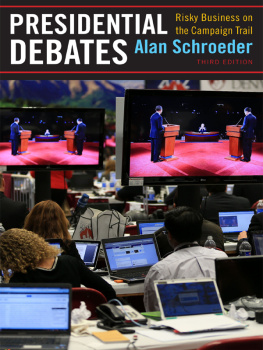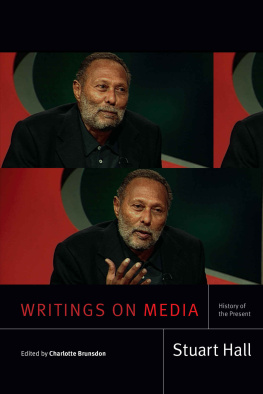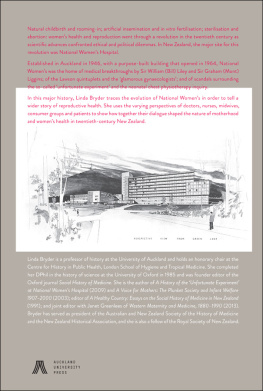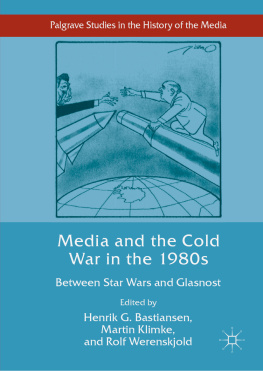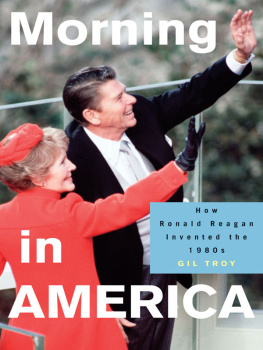First published 1988 by Transaction Publishers
Published 2017 by Routledge
2 Park Square, Milton Park, Abingdon, Oxon OX14 4RN
711 Third Avenue, New York, NY 10017, USA
Routledge is an imprint of the Taylor & Francis Group, an informa business
Copyright 1988 by Richard M. Clurman.
All rights reserved. No part of this book may be reprinted or reproduced or utilised in any form or by any electronic, mechanical, or other means, now known or hereafter invented, including photocopying and recording, or in any information storage or retrieval system, without permission in writing from the publishers.
Notice:
Product or corporate names may be trademarks or registered trademarks, and are used only for identification and explanation without intent to infringe.
Library of Congress Catalog Number: 88-12339
Library of Congress Cataloging-in-Publication Data
Clurman, Richard M.
Beyond malice: the medias years of reckoning / Richard M. Clurman.
p. cm.
Includes index.
ISBN 0-88738-234-7
1. Press-United States-Influence. 2. Press-United States-History-20th century. 3. Journalism-Political aspects-United States. 4. Journalism-United States-Objectivity. 5. Public opinion-United States. 6. Journalistic ethics-United States. 7. Journalism-Social aspects-United States. I. Title.
PN4888J53C56 1988
302.2340973-dc19
88-12339
CIP
ISBN 13: 978-1-4128-4237-2 (pbk)
ISBN 13: 978-0-88738-234-5 (hbk)
We editors stand for the free press. That was enough in Jeffersons dayand even in Hearsts. But, in my time, all journalists feel compelled to announce themselves as the free and responsible press. We would no more go around without our cloak of responsibility than a lady would be caught without her mink.
Henry R. Luce, 1962
O ne of the first lessons I learned in professional journalism came from a plainspoken managing editor whose origins were in midwestern newspapering. Journalists, he said, although he preferred the word reporters, should be read but not seen. The perpendicular pronoun, I, never survived his sharp copy pencil. He always wanted to know about them not about us.
Because this is a book about the rising tension between contemporary journalists and the people and events they cover, there are very few copy pencils left. They have been replaced by the ballpoint and tape recorder (for notes), the video terminal (for writing and editing) and the television screen (for looking at the world). In this new era it seems important to me that journalists at times reveal background about themselves as they routinely do about others. How else can you know whos talking to you? How can you evaluate the information, opinions, selection of what goes in and what stays out, unless you know about the people who are giving it to you?
So I begin by using the first person more than my old editor would ever have tolerated. I view it as disclosure or orientation for readersnot an exercise in reminiscence or personal vanity. You will have to decide for yourself.
T he eighth floor of the Time & Life Building, in Manhattans Rockefeller Center, is equipped with a large suite, richly appointed, for meetings, receptions, dinners and other ceremonials. On one such occasion, in the early 1960s when the building was new, two imposing men stood in a corner of the suite, away from the crush, locked in solitary conversation. Physically they bore some slight resemblance to each other. Born a year apart, both were tall, white-haired and visibly intense. Almost everything else about them was different.
They were friendly adversaries, agreeing on only one shared basic proposition. It sounds pretentious todayas it did thento restate their premise but they often did so themselves without self-consciousness. They both were fond of saying, in one way or another, that they were in search of the truth and how to apply it to their own and other peoples lives. They reveled in such lofty formulations.
They were democratic enough about it. Unlike some evangelists, or tyrants, they did not impose whatever truth they found on others. They just proclaimed it and hoped to convince. But even that basic starting point created no real bond between them. The common foundation they both built upon had little to do with the materials they used or the structures each erected.
One was Henry (Harry) R. Luce, the son of a Presbyterian missionary to China. He was the founder of what became the largest magazine publishing company in the world. Luce was a brusque, question-asking journalistic genius who, when he was finished inquiring, knew the Truth and expressed it in print and pictures, or spoke it with stylish, albeit stammering, confidence. He passionately believed in individualism, God, the United States and Time Inc.probably in reverse order. His Truth tended to be Republican in domestic politics, relentlessly American and capitalist in world affairs. It was religiously humanitarian, even egalitarian in social outlook. The rule of law was his second Bible. There is no such thing as objectivity, was his working creed, only fairness. His magazines never tried to be objectiveand they were not always fair. Above all, he was proudly opinionated in his journalism.
Once, just before he was to appear before a large college audience, he summoned me to his dining room for a quick briefing on what I expected the students would ask him. I said I was sure they would press him on the one question that everybody always raised. Someone was certain to ask how Time, which he invented (along with Life, Fortune and Sports Illustrated), could call itself a newsmagazine yet be so full of opinions. Whats the answer? he asked. I demurred, suggesting he knew better than I. He would have none of that and insisted I tell him how I responded when someone pressed me on that point. He seemed impressed with my standard, lengthy explanation of his philosophy, and flew off to meet his audience. Sure enough it was the first question thrown at him. Before answering, he paused a long few seconds, then ignoring my solemn approach, blurted out: Well, I created the word newsmagazine. I guess I can define it any way I damn well please. I worked for Luce for twenty exhilarating years.
T he other man in that crowded Time Inc. reception room was Robert Maynard Hutchins, as much an innovator in education as Luce was in journalism. At twenty-eight he was dean of the Yale Law School, at thirty president of the University of Chicago. For him truthwith a small tlay in the wisdom of the ages, compacted into his and Mortimer Adlers Great Books of the Western World. Hutchins godwith a small gwas reason, rooted in Aristotle and refined by Thomas Aquinas. I was his student and admirer. He even gave me my degree, which, typically, was of his own creation. It was a Ph.B. (bachelor of philosophy), which often turns up in print with a mistaken but more impressive D.
Before I knew him, I had been a grammar school, high school and army newspaper editor. So it was at least not out of character when I suggested to him that the University of Chicago, then one of the most intense academic centers in the world, should have a daily newspaper equal in excellence to the universitys other distinctions. He skeptically agreed and encouraged me to go ahead. The result, in keeping with the atmosphere he radiated, was not a daily but a quarterly journal, the


